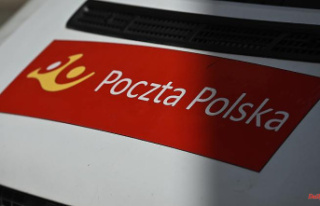The dispute over transit traffic between Russia and the Kaliningrad enclave was just about to escalate when the EU put out the incipient fire: Russian goods transports should be able to pass through Lithuania largely without sanctions. The German perspective prevails.
The dispute over Russian goods transports to Kaliningrad has been defused: after protests and threats from the Kremlin, the EU Commission has drawn up new guidelines for transit traffic between Russia and the Baltic Sea exclave. According to a document that has now been published, Russia is allowed to bring civilian goods that are on the sanctions list by rail through the EU country Lithuania without major restrictions. Moscow had previously accused Lithuania of illegally restricting the movement of goods with the exclave.
The point of contention are goods on EU sanctions lists, including iron and steel products, but also fertilizers, wood and cement. In the guidelines, the EU stipulates that goods may only be transported in the previously customary quantities. There should also continue to be targeted and effective controls. According to the guidelines, if larger quantities of goods are transported than usual, they must be stopped. This is intended to prevent Russia from exporting goods that are on sanctions lists to other countries via Kaliningrad and thus avoiding punitive measures.
With the new guideline, there is still a de-escalation in the dispute that has been going on for weeks. However, there had been another crash beforehand: on Monday, Lithuania put the second stage of the EU sanctions package against Russia into effect - apparently without Brussels' approval. The EU Commission had announced that it would publish an instruction by July 10th on how to deal with transit traffic between Russia and its exclave on the Baltic Sea. But the deadline passed. And Lithuania then created facts.
Since Monday, not only the transport of steel, coal and building materials between Russia and Kaliningrad has been restricted, but also the transit of concrete, wood and alcohol. The Kremlin saw the action as a violation of an agreement with the EU from 2002 that guaranteed free transit trade with the exclave - and immediately announced "tough countermeasures".
The discussion caught the EU on the wrong foot. In the case of Kaliningrad, not only Chancellor Olaf Scholz saw it, but it was about the movement of goods between "two parts of Russia". And it's allowed to flow. Lithuania saw it differently. Because the goods have to be transported through the EU country by rail, the country felt responsible for implementing the EU sanctions against Kaliningrad as well. The word of power from Brussels is now a bitter defeat for the government of Prime Minister Ingrida Šimonytė. Domestically, it should be seen as giving in to Russia.
The centre-right coalition had even made its own survival dependent on a hard line on Russia. As a former Soviet republic - and especially after the Russian invasion of Ukraine - Lithuania has a vital interest in not sending any sign of weakness to the Kremlin. "We have not always taken the prospects and fears of this country as seriously as it should have been," said the chairman of the Foreign Affairs Committee in the Bundestag, SPD politician Michael Roth, in an interview with ntv.de.
Even if the intra-Russian trade in goods should not actually be sanctioned, even in Roth's opinion, Lithuania fears that Russia could circumvent the sanctions regime in Kaliningrad - for example, by using the port of the exclave as an export port because the sea routes are not controlled. This concern has now found concrete expression in the guideline. "Kaliningrad is Russia's only ice-free port on the Baltic Sea," says Eastern Europe expert Kai-Olaf Lang from the German Science and Politics Foundation (SWP) when asked by ntv.de. However, he is "not entirely convinced" by the argument that Russia can ship sanctioned goods on a large scale through the Suwalki corridor to Kaliningrad and from there abroad.
If the EU had remained firm on this issue, it could have had consequences for Lithuania as well. There are still places where the Kremlin can hit Lithuania hard - for example in the power supply. Since the shutdown of its only nuclear power plant, Lithuania has been dependent on electricity imports. Although they no longer come from Belarus and Russia as they used to, the power grid is still synchronized with the BRELL grid from Soviet times. Electricity from the EU grid - for example from Poland - must first be converted. Excluding Lithuania from the BRELL network would have been technically possible. However, Lang points out, this could have had direct repercussions in Kaliningrad itself.
The country's largest railway company, LTG, has already been hit hard by the sanctions. It does a large part of its business in freight transport - almost 40 percent of which is in transit between Russia and Kaliningrad. The punitive measures against Belarus after the manipulated presidential election in 2020 had already affected the Lithuanian state enterprise. LTG alone lost 11 million tons of annual freight via the sanctioned potash producer Belaruskali. The state railway recently announced that it would have to lay off a quarter of its workforce.
Lithuania was nevertheless ready to make this sacrifice. The fact that the country is now having to give in to the Kremlin is likely to cause resentment - not only in Vilnius, but also among its Baltic neighbors, who vehemently warn against backing down from Vladimir Putin.












